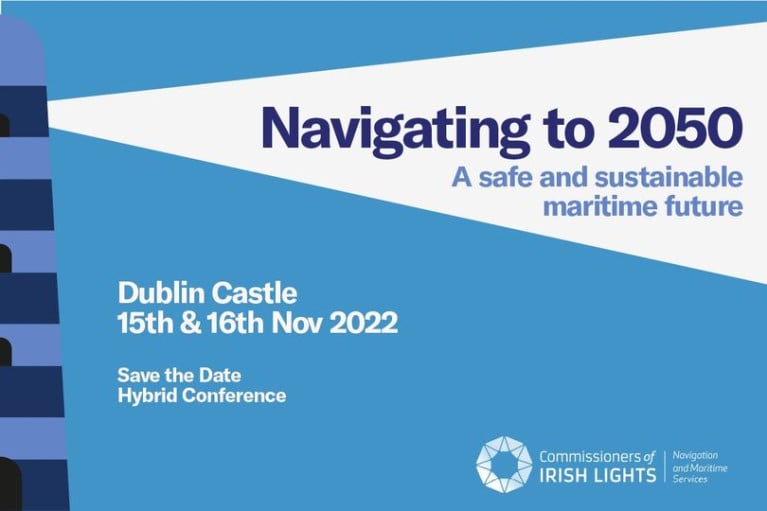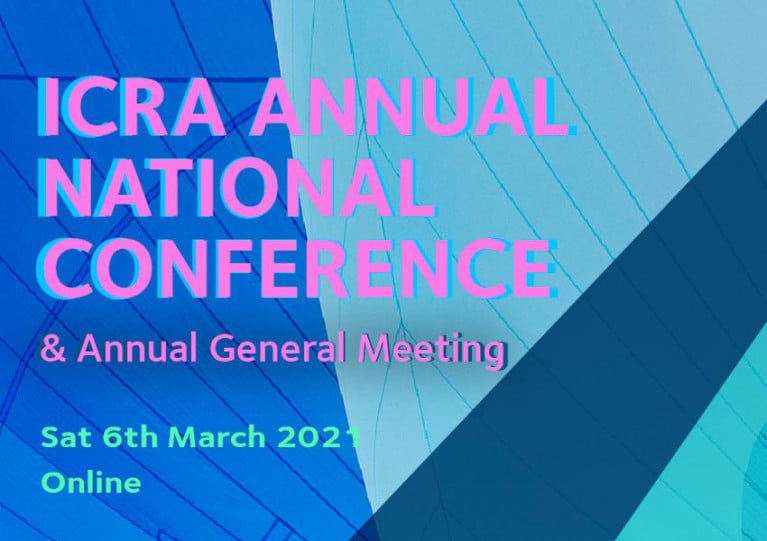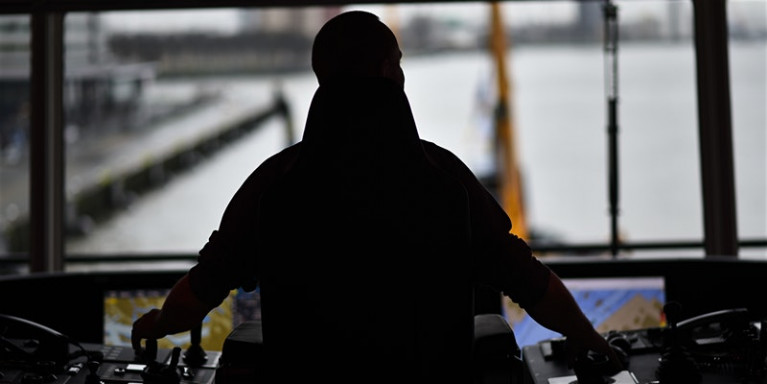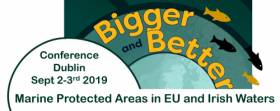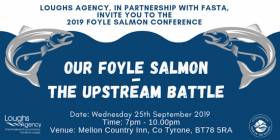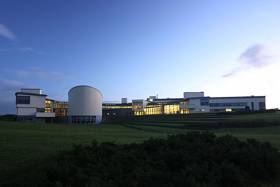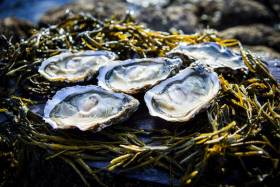Displaying items by tag: Conference
Renewable Energy Development Among Hot Topics for Discussion at Engineers Ireland National Conference Next Week
The importance of renewable energy to Ireland’s future is among the topics that will be discussed at next week’s Engineers Ireland National Conference.
Time for Inspiration, Engineering Innovation and Leadership is the theme of this year’s conference, which will be held at the O’Reilly Hall at University College Dublin on Wednesday 25 October and will hear from a range of influential thought leaders on the role engineering is playing, and can play, in key areas of our society.
Decarbonising Ireland’s energy infrastructure will be the focus of contributions from Dr Tanya Harrington, chair of Renewable Energy Ireland, who will provide an up-to-date picture of how renewable energy is developing in Ireland and what changes are required over the coming years to achieve an effective transition to a net zero future.
Other presenters relevant to Afloat.ie readers include Niall Gleeson, CEO of Uisce Éireann (formerly Irish Water), who will address the engineering challenges the company encounters while protecting Ireland’s water supply and providing a safe, secure and sustainable water system to a rapidly growing population.
And Seán Atkinson, managing director of ESB International, a leading global engineering consultancy with experience across 120 countries, will speak about the provision of services in transmission and distribution, thermal and renewable power generation, utility management and strategic advisory while placing focus on transition to low-carbon solutions.
Details of the day’s other speakers can be found on the Engineers Ireland website, and tickets for Engineers Ireland members to attending this premier learning and networking event priced at just €30 can be purchased HERE.
The Commissioners of Irish Lights has announced a major conference ‘Navigating to 2050 – A safe and sustainable maritime future’.
The two-day conference will be held in Dublin Castle on 15-16 November 2022 and a virtual attendance will also be available.
Safely navigating to a decarbonised maritime sector by 2050 requires extensive knowledge building, investment and holistic approaches. More importantly, it requires immediate action. These issues stretch across the entire marine sector incorporating shipping, ports, energy, fuel supply and storage, environmentally-friendly and safe navigation, operations and effective regulation.
At a time of major challenge, but also very significant opportunity, this conference will bring together a diverse range of key national and international leaders to debate a safe and sustainable route to 2050. The conference will identify the gaps, synergies, levers and opportunities that will enable progress on this critical journey.
To register your interest and view key speakers visit this link.
Full conference registration and further programme details will be available from Irish Lights in August.
This week the Loughs Agency welcomed Europe’s top marine scientists to the Northwest for the European Tracking Network’s (ETN) annual meeting, with delegates from across the continent attending the three-day event in Derry.
The conference, which is funded by the EU’s COST Action programme, took place in the City Hotel Derry from Tuesday 5 to Thursday 7 April, with attendees taking part in a range of informative workshops and activities.
The Loughs Agency is a member of ETN, an initiative devoted to furthering knowledge and management of aquatic species around Europe.
The network has six strategically placed large marine fish counters — known as ‘arrays’ — situated across the continent’s waters, with various member organisations involved in the long-term project.
During the conference delegates discussed a range of issues, including the current status of the project, new funding opportunities, key species for research and new projects in the pipeline.
Those in attendance have also embarked on site visits to Lough Foyle and rivers in the Foyle catchment. Over the course of these visits, they were able to observe the agency’s fish counters as well as estuary arrays which are deployed as part of SeaMonitor, the Loughs Agency-led project which has been described as “Europe’s largest fish counter”.
Graham Warke, the Mayor of Derry and Strabane was in attendance at the City Hotel Derry on Wednesday 6 April to meet delegates, and the party also had the opportunity to sample some of the region’s finest food and drink at the Walled City Brewery.
Sharon McMahon, acting chief executive of the Loughs Agency said: “We are delighted to have the opportunity to welcome so many esteemed scientists, academics and environmentalists from across Europe to the Foyle catchment area in Ireland’s scenic Northwest.
“The agency is proud of the incredible work carried out by our science function on a daily basis, and as lead partner on the SeaMonitor project, we are fortunate to be right at the cutting edge of fish tracking technology.
“Through continuous collaboration with our European colleagues, this ETN annual meeting will enable us to increase our knowledge of aquatic species, which in turn will help us preserve marine life throughout Europe.”
ETN coordination Dr Jan Reubens explained that the network’s mission “is to track aquatic animals across Europe to better understand, protect and manage them. This meeting is an important milestone to boost our objectives by creating network opportunities, strengthening collaborations, sharing knowledge and advancing the science.”
Killarney to Host International Aquaculture Symposium This June
The 2022 EIFAAC Symposium will be hosted by Inland Fisheries Ireland and the Department of the Environment, Climate and Communications at Randles Hotel in Killarney on 20-21 June.
The rubric for the 31st symposium of the European Inland Fisheries and Aquaculture Advisory Commission — the first since Dresden, Germany in September 2019 — is ‘Advances in Technology, Stock Assessment and Citizen Science in an Era of Climate Change’.
Four themes have been identified for the symposium relating to inland fish stock assessment, developments in freshwater fish monitoring technologies, assessing the impacts of climate change on freshwater fish and their habitats and the role of citizen science. The fifth theme will focus on the pros and cons of traditional vs recirculation aquaculture systems.
Abstract submission is open for presenters until this Friday 18 February. Notification of acceptance letters all be sent on 25 March and presenting authors will have until 28 March to register. The deadline for submission of manuscripts/presentations is 13 June, one week before the symposium.
For those wishing to attend, early-bird registration is now open at €120 (students €80) until 1 April. Payment made after this date will incur an extra administration charge of €20.
For more details on attending the conference, see the IFI website HERE.
Registration Now Open For Online ICRA Conference & AGM
ICRA has published the agenda and registration details for its 2021 Conference and AGM taking place over Zoom on Saturday 6 March.
As previously reported on Afloat.ie, RTÉ and Met Éireann’s Evelyn Cusack will head an exciting and interesting line-up of guest speakers and presentations.
ICRA Commodore Richard Colwell will kick off proceedings at 10.30 am with the welcome and Commodore’s update.
This will be followed at 10.40 am by Evelyn Cusack’s half-hour presentation on forecasting the weather. And at 11.10 am, esteemed yacht designer Mark Mills will give a brief talk on his line of work.
After a short 10-minute break, the conference resumes at 11.40 with an events update from Harry Hermon of Irish Sailing, and briefings on the Dun Laoghaire to Dingle Race by Adam Winkelmann, Sovereigns Cup by Anthony O’Neil, Dun Laoghaire Regatta by Con Murphy, ICRA Nationals by Ric Morris and ISORA from Peter Ryan.
 Updates from the organisers of key Irish regattas, including VDLR above, will be given at March's ICRA online Conference Photo: Afloat
Updates from the organisers of key Irish regattas, including VDLR above, will be given at March's ICRA online Conference Photo: Afloat
At 12.05 pm, Dave Cullen will host an events and racing Q&A session, followed at 12.20 pm by the formal opening of the AGM by Richard Colwell.
ICRA Treasurer John Leech will give a financial update, which will be followed by an update on activities and objectives.
Under 25 programme update
Brian Raftery will brief on the U25 programme, Denis Byrne will talk the Central Results database, Ric Morris will present on updates and enhancements to rules, and Richard Colwell will give an update on plans for the 2022 Nationals.
From 12.50 pm will be the notification of existing members stepping down from the ICRA executive committee, and the election of new members, followed by the formal closing at 1 pm.
Click HERE for registration details, and find more related documents on the ICRA website.
A conference seminar: 'Seafarer Wellness: Are the signals being read? is to be held on Thursday, 26 March (0900-17.00) at the National Maritime College of Ireland (NMCI), Ringaskiddy, Cork Harbour.
Organisers of the conference is the Ireland Branch Of The Nautical Institute (website) and the Irish Institute of Master Mariners (IIMM) in association with the Department of Maritime Studies at NMCI.
For a list of the seminar speakers list click this link
The conference will be an opportunity to meet colleagues, exchange views and inform Maritime Policy.
To register attendence and book tickets at €20 (incl refreshments and light lunch) click here and for a map of venue location.
For further information contact Deirdre at [email protected]
Trinity Conference To Discuss Ireland’s ‘Poor Performance’ On Marine Protected Areas
The global climate crisis and how it relates to biodiversity and ocean protection is a big topic for discussion at a two-day conference in Trinity College Dublin which starts tomorrow (Monday 2 September).
The ‘Bigger and Better’ Marine Protected Area Conference is co-hosted by Coastwatch Ireland and the Irish Wildlife Trust (IWT), who highlight that Ireland has protected only a fraction of its waters as pledged by 2020.
It will bring together Government officials with international speakers and experts to explore the reasons for Ireland’s “poor performance” when it comes to protecting our seas.
“Ireland is a laggard in providing the protections required to restore our ocean’s health,” said IWT campaign officer Pádraic Fogarty.
“MPAs [Marine Protected Areas] are now widely applied across the world as a tool in protecting biodiversity and ocean ecosystems.
“As an island nation we really should be at the forefront of this effort – not at the back of the class.”
‘Our Foyle Salmon’ Conference In Omagh Next Month
The Loughs Agency is teaming up with the Foyle Association of Salmon and Trout Anglers (FASTA) to host an evening salmon conference in Omagh, Co Tyrone next month.
Our Foyle Salmon – The Upstream Battle at the Mellon Country Inn from 7pm on Wednesday 25 September will hear from speakers on a range of issues including the status of salmon in the River Foyle, current research, threats and steps that can be taken to sustain and protect the species.
This is a fully ticketed event; tickets are free and available through Eventbrite with a maximum of two tickets per transaction.
When registering for tickets you can also submit a question to the panel for the Q&A session at the conference.
European Association Of Fish Pathologists To Host Third Meeting In Galway Next September
#MarineScience - Following on from the successful conferences in Keele (2014) and Stirling (2016), the Marine Institute in Galway will host the third meeting of the European Association Of Fish Pathologists (EAFP) on 11-12 September 2018.
‘Connecting academia with industry for improved aquatic animal health’ is the theme of next year’s meeting, which will focus on the latest scientific advances and how this can be applied to the crustacean, molluscan and finfish aquaculture industries to improve the health of such marine wildlife.
The meeting will open with a keynote lecture followed by specific sessions on topics relevant to the UK and Ireland. Early stage researchers (post-graduate students, PhDs) will also get the opportunity to present their work in a dedicated session.
Registration for this event will open in early 2018. More announcements will follow on the EAFP website. For queries contact Dr Neil Ruane at [email protected].
Galway Hosts Shellfish Safety Conference This May
#Shellfish - Galway will host the 11th International Conference on Molluscan Shellfish Safety (ICMSS 2017) this summer from Sunday 14 to Thursday 18 May.
ICMSS 2017 will be hosted by the Marine Institute in association with the Food Safety Authority of Ireland, Sea Fisheries Protection Authority, Irish Shellfish Association, National University of Ireland and Bord Iascaigh Mhara in the Bailey Allen Hall at NUI Galway.
This 11th conference in the biannual forum series, subtitled ‘Protecting consumers, assuring supply, growing confidence’, offers an important multidisciplinary interface between regulatory, scientific and industrial representatives of the international molluscan food safety community. Unusual, emerging and novel shellfish risk factors will be discussed, offering new information and solutions.
ICMSS 2017 will include keynote presentations from acclaimed international experts in the area. A series of workshops will be held in conjunction with the event on Friday 19 and Saturday 20 May which will be of particular interest to shellfish safety professionals and students, including microbiologists, toxin chemists, toxicologists, marine scientists, regulators, policy makers, food safety specialists, environmental health officials, engineers, environmental managers, academics and undergraduate and postgraduate students.
More information can be found on the ICMSS 2017 website. The programme is available to as a PDF to read or download HERE.



























